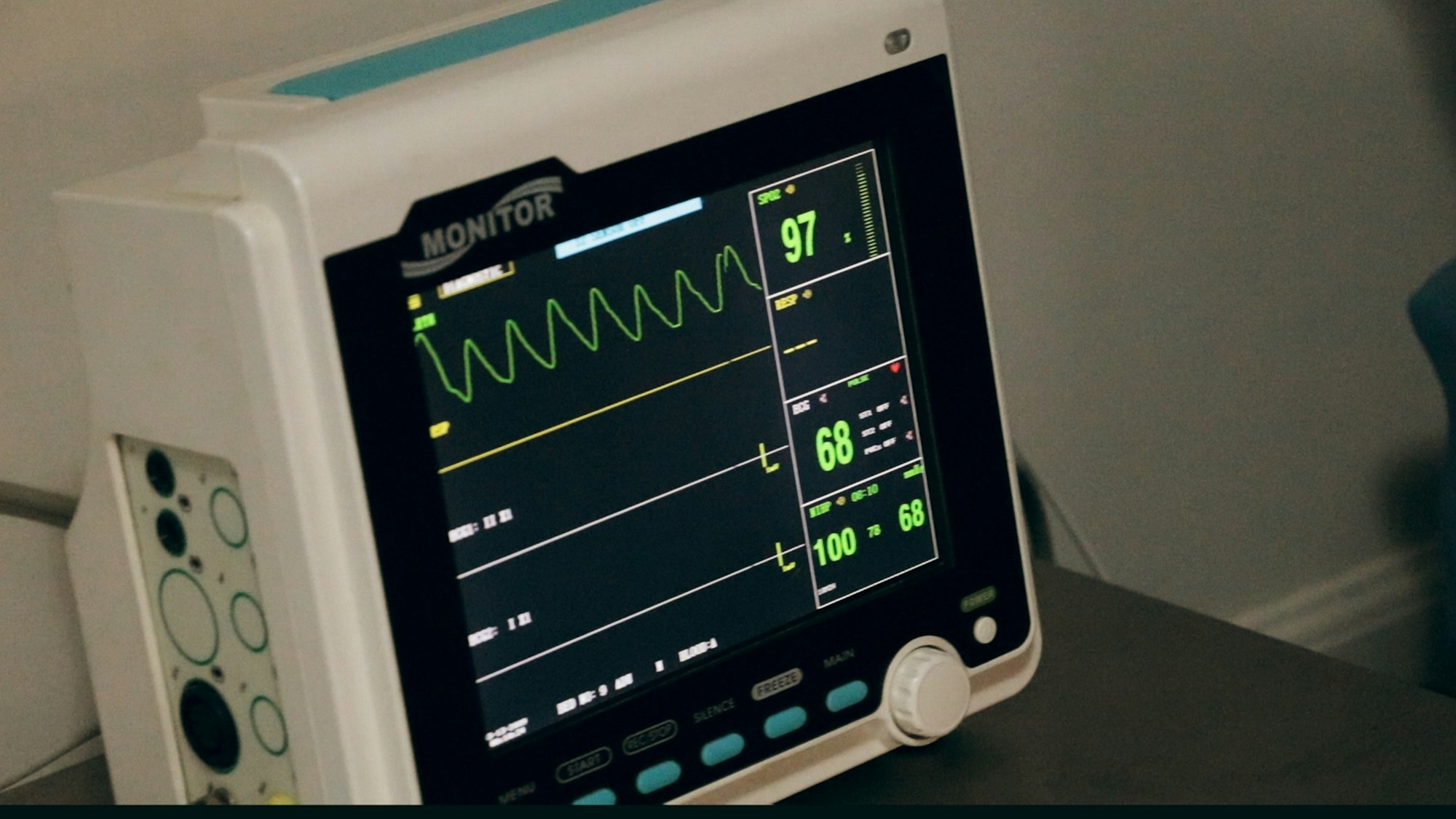As technology continues to transform traditional workplaces, more professionals are discovering the flexibility and convenience of remote work. In the healthcare sector, the role of a medical coder is particularly well-suited to this transition.
Remote medical coding is not only a practical choice in our increasingly digital world, but it’s also a field experiencing growing demand. Medical coders play a pivotal role in the healthcare industry, converting vital health information into codes for billing and data analysis.
Let’s explore the necessary educational background, certifications, job responsibilities, and the essential skills and step-by-step process to become a remote medical coder.
What is Medical Coding?
Medical coding is a critical part of the healthcare industry that involves translating patient information, diagnoses, and medical procedures into standardized codes. These codes are then used for a variety of purposes including billing, research, and population health statistics.
- Billing and Insurance: Medical codes are used to communicate to insurance companies what treatments were given so that providers can be paid appropriately. Each code corresponds to a specific service or item billed. It’s crucial for medical coders to be accurate to ensure that healthcare providers are reimbursed correctly and patients are billed accurately.
- Standardization: Medical coding helps standardize healthcare information. Regardless of language or colloquial differences, medical codes are universal and help ensure consistency in the interpretation and recording of patient data.
- Data Analysis and Research: The codes are used in the analysis of disease patterns, tracking of health trends, and in medical research. They also assist in the planning of healthcare management at all levels.
- Regulatory Compliance and Reporting: These codes are important for reporting diseases to government health agencies and in epidemiology studies. Certain conditions must be reported for public health reasons, and medical coding allows for uniform reporting.
Remote medical coders use different types of code sets depending on the situation. Some common code sets include the International Classification of Diseases (ICD), which is used to code diagnoses; the Current Procedural Terminology (CPT), which is used to code services provided by healthcare professionals; and the Healthcare Common Procedure Coding System (HCPCS), which is used to code products, supplies, and services not included in the CPT codes, such as ambulance services and durable medical equipment.
What are the Responsibilities of a Remote Medical Coder?
Medical coders have a variety of responsibilities within the healthcare industry. Here are some of their key duties:
- Reviewing Medical Records: Medical coders review patient records, notes from physicians and other healthcare providers to understand the patient’s medical history, diagnoses, and treatments provided.
- Assigning Codes: The main responsibility of a medical coder is to accurately assign the appropriate codes for the patient diagnosis, procedures, and treatments based on their review of the medical records.
- Working with Healthcare Providers: Medical coders often need to communicate with doctors and other healthcare providers to clarify information or to gather additional information needed for accurate coding.
- Ensuring Accuracy: Accuracy is crucial in medical coding. Coders must carefully check and re-check their work to ensure that each code is correct. Errors can lead to issues with billing, insurance reimbursement, and patient records.
- Compliance: Coders must stay updated on coding guidelines and regulatory changes. They must ensure that all codes assigned comply with federal regulations and insurance requirements.
- Handling Confidential Information: Medical coders work with sensitive patient information. They must follow strict privacy regulations to protect patient data.
- Submitting Claims: In some healthcare settings, medical coders may also be responsible for submitting coded claims to insurance companies for payment.
- Tracking and Reporting: Medical coders may need to keep records of treatments, tests, and procedures performed, and sometimes are involved in the analysis of these records.
- Continuous Learning: Medicine and coding standards are always evolving. Therefore, medical coders need to participate in ongoing training and education to stay current.
What is the Salary of a Remote Medical Coder?
According to the American Academy of Professional Coders (AAPC) 2020 Salary Survey, the average salary for a medical coder in the United States was approximately $57,201 per year. Coders who held certifications tended to earn more. For example, Certified Professional Coders (CPCs) earned an average of around $64,890 annually.
Entry-level medical coders may start with lower salaries, possibly in the range of $35,000 to $45,000 per year. In contrast, experienced coders or those in supervisory or managerial roles can earn upwards of $70,000 to $80,000 or more.
What are the Skills required for a Remote Medical Coder Job?
Remote medical coders need all of the skills of an on-site medical coder, with a few additional capabilities due to the nature of remote work. Here are some important skills for a remote medical coder:
- Medical Coding Knowledge: As with any medical coder, a strong understanding of medical terminology, anatomy, physiology, and pharmacology is essential. Familiarity with ICD, CPT, and HCPCS code sets is required as well.
- Computer Proficiency: Remote medical coders will be working exclusively on their computers, so a strong grasp of computer use is vital. This includes the use of Electronic Health Records (EHR) systems, coding and billing software, and general computing skills such as word processing and spreadsheet management.
- High-Speed Internet: Since you’ll be working remotely, having a reliable high-speed internet connection is important. It’ll ensure that you’re able to access medical records and coding systems without any issues.
- Self-Motivation and Discipline: Working from home requires the discipline to set a schedule and stick to it. Without the structure provided by a traditional office environment, people may struggle to maintain productivity when working from home.
- Time Management: Similar to the above point, remote medical coders need to manage their time effectively. This includes prioritizing tasks and ensuring deadlines are met.
- Communication Skills: While working remotely, most async communication will be done via email, chat applications, or video conferencing. Being able to effectively communicate in these formats is crucial.
- Data Privacy: Remote medical coders must follow the same strict privacy regulations as in-office coders. This includes ensuring their home workspace is secure and that patient data is not viewable by others in their home.
- Problem-Solving Skills: Sometimes you may encounter discrepancies or gaps in the medical records that you need to resolve. Good problem-solving skills can help you investigate and rectify such issues.
- Continuous Learning: The field of medical coding is dynamic and often subject to changes and updates. A good medical coder should be open to learning and adapting to new coding practices and software.
- Attention to Detail: A small mistake in coding can lead to significant issues with billing and insurance reimbursement, so being detail-oriented is crucial in this role.

Education Requirements for a Remote Medical Coder Job
To become a medical coder, you typically need to complete the following educational steps:
High School Diploma or GED: You’ll need a high school diploma or a GED as a basic requirement.
Post-secondary Education: Many employers prefer medical coders who have some post-secondary education. This could be a certificate program, an associate degree, or even a bachelor’s degree in a relevant field. The focus of these programs should be on topics like medical terminology, anatomy and physiology, health data requirements and standards, classification and coding systems, healthcare reimbursement methods, and computer systems.
Post-secondary programs can be found at community colleges, trade schools, and some universities. Some schools may offer online programs which can be beneficial for individuals who are working or who need a more flexible schedule.
Certification: While not always required, many employers prefer or require medical coders to have professional certification. These certifications demonstrate that you have met certain standards of competence in the field. Certifications can be obtained from organizations like the American Academy of Professional Coders (AAPC) and the American Health Information Management Association (AHIMA).
Examples of certifications include Certified Professional Coder (CPC), Certified Coding Specialist (CCS), or Certified Coding Associate (CCA). These generally require passing an exam, and some may require a certain amount of professional experience or membership in the certifying organization.
Continuing Education: Medical coding is a dynamic field, with changes in healthcare laws, insurance regulations, and technology. To maintain their certification and to stay current with the industry, coders often need to participate in continuing education opportunities. This might be workshops, seminars, courses, or webinars offered by professional associations or other organizations.

How to Become a Medical Coder?
Becoming a medical coder involves a series of steps that typically include the following:
- High School Education: This is the first step to any career. Getting a high school diploma or GED is a requirement for most medical coding jobs.
- Post-secondary Education: While it’s possible to find a medical coding job with only a high school diploma, most employers prefer applicants who have further education in the field. Many community colleges, vocational schools, and online learning platforms offer certificate programs in medical coding. These programs usually take around one year to complete and cover topics such as medical terminology, anatomy and physiology, health statistics, and computer science.
- Get Certified: The healthcare industry recognizes several certifications for medical coding. These include the Certified Professional Coder (CPC) from the AAPC, the Certified Coding Specialist (CCS) from the AHIMA, and others. Becoming certified often requires passing an exam and may require or prefer a certain amount of professional experience in the field.
- Gain Experience: Some medical coders start in related healthcare roles, like health information technology, to gain experience before moving into a medical coding role. Others may start as junior medical coders and learn on the job.
- Set Up a Home Office: Make sure you have a quiet, comfortable workspace at home with a reliable internet connection and any required software. This could include a coding platform, electronic health record system, and general office software like word processing and spreadsheets and other remote work tools.
- Stay Current: Maintain and renew your certification as required by the certifying body. This often involves continuing education units (CEUs).
- Apply for Remote Coding Jobs: Look for remote medical coding jobs on remote job boards, company websites, and sites specifically for remote or telecommute jobs. In your application or interview, emphasize any experience you have working remotely and your ability to manage your time and stay motivated while working from home.
- Data Security: Be aware of and follow all regulations related to patient privacy and data security. This is particularly important in a remote work environment where you are responsible for protecting the data in your home office.
Remember that job requirements can vary by employer, so it’s a good idea to look at remote job postings in your area to see what qualifications employers are looking for. This can help you tailor your education and certification choices to meet those requirements.

Top companies hiring for Remote Medical Coding Jobs
There are several notable companies known for hiring remote medical coders. Here are a few:
- UnitedHealth Group: UnitedHealth Group is a diversified health and well-being company dedicated to helping people live healthier lives. They often have remote coding jobs available through their Optum branch.
- Change Healthcare: A healthcare technology company that provides software, analytics, network solutions, and technology-enabled services. Change Healthcare have varipous positions for remote medical coders.
- Ciox Health: Ciox Health is a healthcare IT company that often has remote positions for medical coders.
- Humana: Humana is a leading healthcare company that offers a variety of health, wellness, and insurance products and services. Humana often hire for remote coding positions.
- nThrive: This company provides revenue cycle management services for healthcare providers. They typically have a variety of remote medical coding jobs.
- Maxim Healthcare Services: They offer a variety of healthcare services and often have openings for remote medical coders.
- Aviacode: This company specializes in medical coding and billing. Aviacode frequently have openings for remote coders.
- Conifer Health: They offer a variety of services for hospitals, health systems, and physician groups, including coding and billing services.
Remember to check these companies’ official websites or remote job posting platforms like DailyRemote, Indeed, LinkedIn, or Glassdoor for current vacancies. Keep in mind that the availability of remote positions may vary depending on the current situation of the company and their response to changing conditions.
Conclusion
The path to becoming a remote medical coder is a rewarding journey that combines the flexibility of working from home with the stability and growth of the healthcare industry. This role requires a blend of technical skills, an understanding of medical terminology, and a dedication to accuracy and detail. With the right education, certification, and experience, you can find ample opportunities in this high-demand field.
Whether you’re starting from scratch or transitioning from an on-site role, pursuing a career as a remote medical coder can open doors to new professional opportunities. It allows you to contribute to the healthcare sector, even as you enjoy the benefits of a remote work environment.
So, what are you waiting for? Begin your medical coding journey today, and remember – practice makes perfect! With time and persistence, you’ll find yourself working in a thriving, in-demand field with plenty of opportunities to prosper.
If you are searching for a remote medical coding job at and need help finding where to look? We are a remote job board with the latest jobs in various categories to help you. Try these top remote companies offering 4 day work week and join like-minded people in our LinkedIn community.
FAQs
Is medical coding a good career?
Yes, medical coding a good career for anyone. Here are a few factors to consider:
- Growing Demand: The healthcare sector is one of the fastest-growing industries, and the demand for medical coders is expected to grow as the need for healthcare services increases. Aging populations and the implementation of electronic health records are contributing to this growth.
- Work Flexibility: Medical coding can offer flexible work arrangements. Many positions allow for part-time or remote work, which can provide a good work-life balance when working from home.
- Competitive Salaries: The salaries for medical coders can be competitive, especially for those who hold certifications and have significant experience.
- Opportunities for Advancement: As you gain experience and additional certifications, there are often opportunities for advancement in the field. You might move into supervisory or managerial roles, or specialize in a specific area of medical coding.
- Continuous Learning: If you enjoy learning, medical coding could be a good fit. The field is always changing due to updates in healthcare regulations and coding guidelines, so there are always new things to learn.
Are medical coders in demand?
Yes, medical coders are in very high demand right now. According to the U.S. Bureau of Labor Statistics (BLS), the employment of health information technicians, which includes medical coders, is projected to grow 8 percent from 2019 to 2029, faster than the average for all occupations. However, it’s always a good idea to check the most recent data for the most current outlook.
Can you make good money as a medical coder?
Yes, medical coding can offer competitive salaries, especially for coders who have significant experience and hold professional certifications. As of 2020, according to the AAPC, the average salary for a certified medical coder in the United States was around $57,201 per year, with certified coders earning an average of $64,890 annually.


